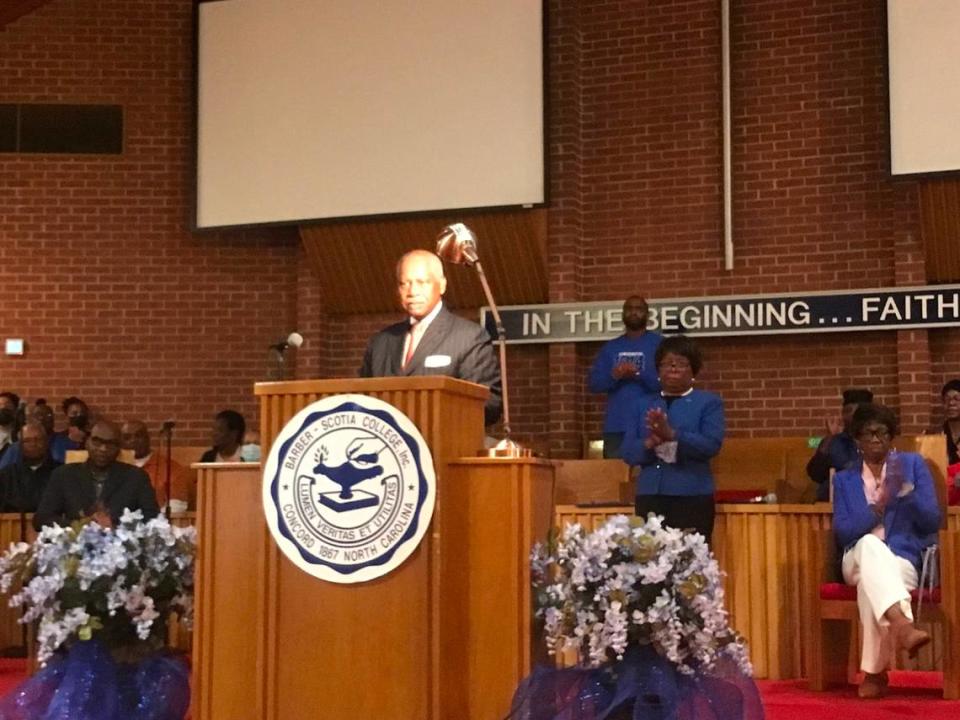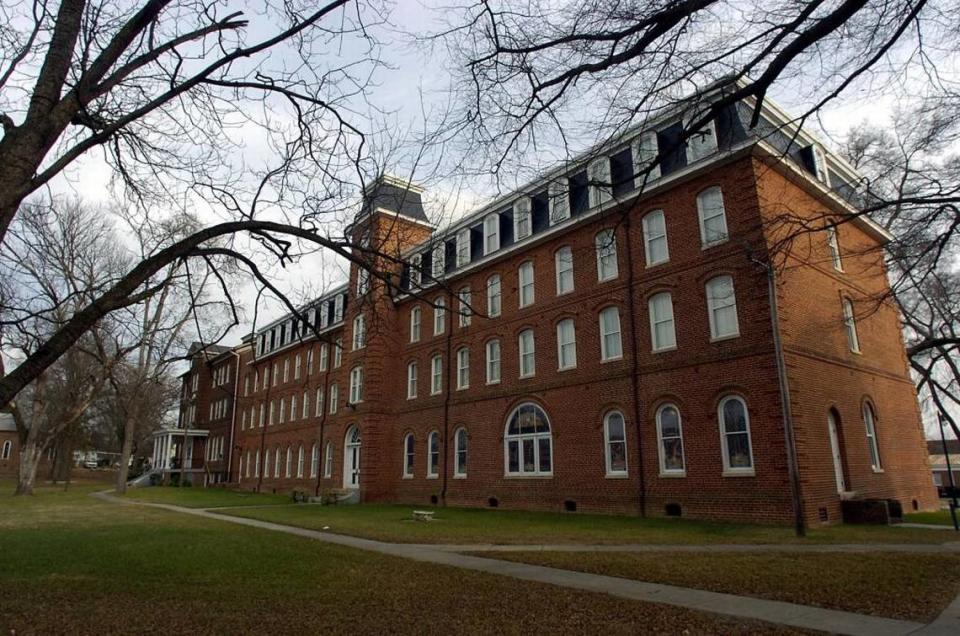‘Break our silence’: A North Carolina HBCU is questioning its city’s intentions
Barber-Scotia College leadership gathered Saturday to respond to claims of obstruction from Concord city officials and shared a timeline of a relationship that soured once two dorms were demolished in 2014.
“We are here today to break our silence,” Roberta Pinckney, chair of the Board of Trustees, said.
She was joined by more than 40 people in Kittie Sansom Chapel on the Concord-based HBCU’s campus. Community members gathered on stage to show support for the historic college.
In the past several years, the 155-year-old college has faced hardships since losing its accreditation in 2004. The current enrollment has four students who attend the college online. It held its most recent graduation in 2019.
Pinckney said the two dorms had fallen into disrepair and were judged as community hazards by the city. The city hired a contractor to demolish the buildings since the college was unable to pay, she said.
But a $380,000 bill was not sent to the college until 2021, she said, and the school was only given 30 days to pay. In 2017, Concord city officials formed a Barber-Scotia College Properties task force. She said the move was viewed as a scheme to turn the community against the college. College representatives were initially excluded, she added.
The task force later hired an engineer to inspect the buildings on campus. Pinckney said school leadership felt this request was “collusive.”
“The Board and its alumni did not trust the city after the dorms were demolished,” Pinckney said, adding that city officials terminated the agreement.
Last week, the Concord city council disbanded the task force for the school.
“Despite our efforts and financial commitment, Barber-Scotia College officials refuse to work in partnership with us, and have continuously obstructed the work of the Task Force,” Concord’s City Council said in a statement.
Concord City Council member JC McKenzie, who led the task force, was not immediately available for comment Friday.
McKenzie told WCNC the property could be taken through eminent domain. But he wouldn’t support that decision unless the community was behind it, the outlet reported.
Eminent domain allows a local or state government to take private property for “public use.” The government can take the property but must pay the owners “just compensation,” according to the Institute for Justice.
Rev. Leonard Jarvis, president of the Cabarrus County NAACP, said too often HBCUs go without equitable funding or support from local and state officials. Jarvis said HBCUs are needed and important institutions for Black communities across the country.
“Too often a white majority has removed our institutions,” Jarvis said. “But they maintain their own.”

 Yahoo Autos
Yahoo Autos 


